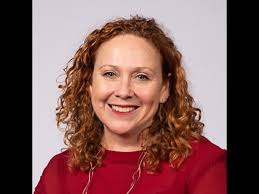Victoria has reached a milestone in its move to clean up local government with the introduction of legislation to boost integrity and governance among the state’s 79 councils.

Since the last council elections in 2020, 56 councillors have resigned and 11 councils have had municipal monitors appointed, with one council suspended and one dismissed as a result of governance issues.
Reforms to the Local Government Act, most of which will come into effect after council elections in October, were introduced into parliament on Tuesday.
They include a uniform councillor code of conduct, mandatory training and annual professional development for councillors and mayors.
The legislation also comes with a stick, with tougher sanctions for misbehaving councillors and more teeth for local government watchdogs.
Under the new laws, councillors who create a risk to health and safety, or prevent Council from performing its functions, will be suspended or disqualified.
Local Government Minister Melissa Horne says the reforms come in response to recommendations made by the states anti-corruption commission IBAC and the Chief Municipal Inspector.
“Victorians deserve councils that represent them and meet their needs – our reforms will enhance governance and accountability across all our councils,” she said in a statement.
“Our reforms will create a uniform code of conduct across all councillors and introduce mandatory training, supporting councils to best represent the communities they serve.”
The government says Local Government Victoria will now begin working with the sector to develop a model councillor code of conduct and mayoral and councillor training.
Consultation will be carried out by a steering committee and public consultants.
Inquiry to probe cost shifting
Meanwhile, local government funding and service delivery in Victoria, including cost shifting and new funding models, is set to come under scrutiny by a state parliamentary committee.
The Upper House Economy and Infrastructure Committee will look at local governments’ ability to deliver core services, the effects of cost shifting from state and federal governments and the sustainability of current revenue structures
Submissions are open until the end of June.





Unless they are going to mandate that councils stick to local issues in their municipalities, mandate hold regular debates, and expell councillors that join political parties after they are elected, then I have absolutely no faith in this action to clean up local government.
This should extend to state and federal politicians as well, there are plenty of grubs on both sides of politics and I read much more in the papers about their antics than local govt. I am always concerned with the quality of candidates’ that put up or potentially put up their hands especially in regional areas. You really need to remove all the factions in local government it should be totally “A” political. Can’t stress this enough. We are there to serve the rate payers nothing else!!!
You need a carrot along with the big stick to encourage quality people.
Get rid of the ridiculous stifling red tape imposed by your
bureaucrats.